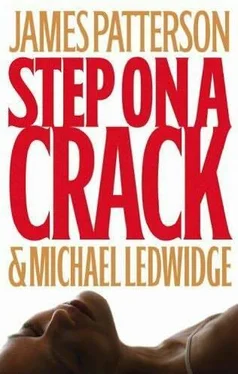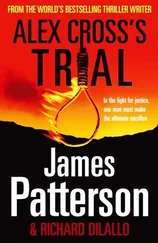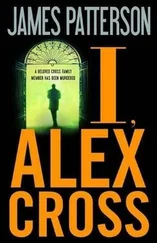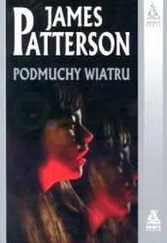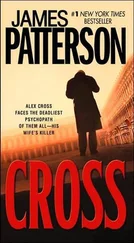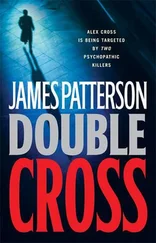I guess they hadn’t been invited to Costa Rica with dear old Dad.
A form passed the window and I drew my Glock. Then the front door opened slowly.
Struggling with a bulky carry-on and a black Tumi suitcase, Paul Martelli had a puzzled expression as he watched the airport limo pull away down the block without him. That’s when I stepped out from my spot beside the hedges.
“Paul, how are ya?” I said. “Funny seeing you here like this. I was just talking to a friend of yours. Jack. He sends his regards.”
I watched a terrible flicker in the FBI negotiator’s eyes. A tremor seemed to suddenly affect his right hand holding the suitcase, the one nearest to a still-holstered nine millimeter.
I showed him the Glock I was already holding beside my leg-as three sniper laser dots suddenly danced on his chest like a squadron of angry red bees.
“That would be some very poor decision making there, Paul,” I told him, “going for that nine. But I’d like to see you try. Give it a shot, Neat Man.”
“I WA-WA-WANT a lawyer,” Paul Martelli said when he was handcuffed to the leg of my squad room desk about half an hour later in Manhattan.
The cool, calm demeanor I remembered from outside St. Pat’s seemed to have taken a long bathroom break. The man’s hands were shaking, and circles of sweat had formed beneath the sleeves of his crisp blue dress shirt. There was an army of Feds out in the hall, waiting to get their crack at him, but not until I was done.
There was one thing I needed him to clear up for me.
Jack had already told me most of it. How he and Martelli had become fast friends after the Rikers Island hostage situation. How they found that they shared an undying contempt for the system; how they felt their pathetic pay was beneath them.
Martelli had been the inside man during the siege. He was the mastermind working behind the scenes, pushing our buttons. Literally having written the book on the subject, he knew what our reactions would be. Plus, he could influence what we did.
“I don’t have to explain to you how the game works, do I, Paul? Cooperation is the only thing that can save any of you losers,” I said. “Right now, the music’s still playing, but I’ll give you a little tip. The seats are almost full.”
Martelli sat there blinking and sweating. I could almost see the thoughts shifting through his head. His right knee began to jump suddenly.
“I’ll tell you whatever you need to know on one condition,” he said.
“What’s that?” I said.
“This place is filthy dirty,” the FBI agent said. “I need a moist towelette. I’m nervous, Mike.”
“How was the First Lady killed?” I said after I tossed him a lemon-scented one from under the take-out menus inside my desk drawer. Martelli didn’t speak again until he was finished meticulously scrubbing his face and hands. He seemed to have calmed down considerably, too.
“Alvarez did her,” he said.
“Jose Alvarez?” I said. “The hijacker who was killed at the dealership during the escape?”
“Actually, his cousin Julio,” said Martelli. “We had a pretty tall order,” he went on, staring at the back of my computer monitor. “In order to get a state funeral going, we needed to kill somebody high-profile and make it look like an accident. For months, I pored over potential targets. When I read about the First Lady’s allergy and her and the former president’s annual holiday meal at L’Arène, I figured we had it solved. We all put our heads together; then we made our pact. Julio quit his guard job and got a prep-cook job at L’Arène. When the president and First Lady came in, he put peanut oil in her foie gras in the kitchen.”
“So it was all over money?” I asked the FBI agent.
“We can’t all be Boy Scouts like you, Mr. Mom,” the negotiator said, looking me in the eyes for the first time. “Of course it was about money. Ring up those rich-and-famous assholes we kidnapped. They’ll tell you straight up. If they take your call, that is. Money’s what makes this dirty world go round, Mike.”
I looked away from Martelli in disgust. A young FBI agent with a wife and two small kids had been killed during the standoff, and it was obvious Martelli couldn’t care less.
But I could see panic start in Martelli’s eyes as I motioned at the door and the Feds walked in for him.
“You wouldn’t happen to have another Wet-Nap for the road there, Mike?” he said quickly.
I opened the desk drawer for a millisecond, then slammed it shut.
“Wouldn’t you know it,” I said. “I’m fresh out.”
Epilogue. SAINTS
Chapter 116
THOUGH IT WAS FREEZING cold and windy, the sun was shining as we Bennetts resolutely made our way through the stone-walled entrance to Riverside Park on Saturday morning a week later. Beyond the bare trees, the Hudson River, our river as Maeve used to call it, looked like an endless field of molten silver.
It didn’t take very long for me to find the orange-taped stake. My darling wife and I had carefully placed it at the edge of a meadow overlooking the water just three months before.
I put down the oak sapling I was carrying on one shoulder and lifted the stake. I glanced at my oldest son. Brian nodded and stabbed the spade he was holding into the earth.
We all took turns. I had to help with Shawna and Chrissy, but Trent insisted on taking his turn by himself. I finally placed the sapling into the hole we’d made. Then I got down on my knees and started pushing the dirt back in with my hands. Pretty soon, I had a lot of help. All of us were down on the ground, hands buried in the fresh dirt.
I stood up finally, staring at the baby tree silently, feeling the cold, moist wind on my mud-covered hands. A tugboat, chugging lazily north on the river, seemed to be making the only sound on the earth.
I remembered watching the sun go down on a late picnic we’d had in summer the year before. Before the cancer, the last time things were really right. The kids catching fireflies as I rested my chin on Maeve’s shoulder, the sky turning aqua and gold. I could feel her now as I stood there without her, the weight of Maeve against me, the way an amputee feels a lost limb, a phantom pain in the heart.
“Mommy’s present to us,” Chrissy said finally, patting the slender tree trunk gently. “Right, Daddy?”
“That’s right, Chrissy,” I said, scooping up the baby and putting her on my shoulders. “Ever since you were little, this was Mommy’s favorite place in the world to take you guys. She told me that anytime you wanted to think about her or talk to her, she wanted you to be able to come here, or just look out your window at this spot and think of her.”
I held Julia’s and Bridget’s hands and gathered our family in a circle around the small tree. I was aware of the single earring I still wore in my left lobe, and would always wear, whatever the fashion, whatever my age.
“Mom brought us all together,” I said, looking at my kids’ faces one at a time. “So as long as we stay together, she’ll always be with us.”
I felt more than heard Chrissy start to cry as we were leaving across the grassy meadow. I lifted my daughter down from my shoulders and cradled her in my arms as she cried.
“What is it, honey?” I said.
“Baby Peep misses Mommy Peep,” she said inconsolably. “So much. So much.”
“I know,” I said, trying and failing to dry her tears and mine at the same time. The wind picked up, drew lines across the still river, painted icicles on our wet cheeks.
“Daddy Peep does too,” I said.
James Patterson is one of the best-known and bestselling writers of all time. He is the author of the two top-selling new detective series of the past decade: the Alex Cross novels, including Cross, Mary, Mary, London Bridges, Kiss the Girls, and Along Came a Spider, and the Women’s Murder Club series, including 1st to Die, 2nd Chance, 3rd Degree, 4th of July, and The 5th Horseman. He has written many other #1 bestsellers, including Suzanne’s Diary for Nicholas, Lifeguard, Honeymoon, Beach Road, and Judge amp; Jury. He lives in Florida.
Читать дальше
